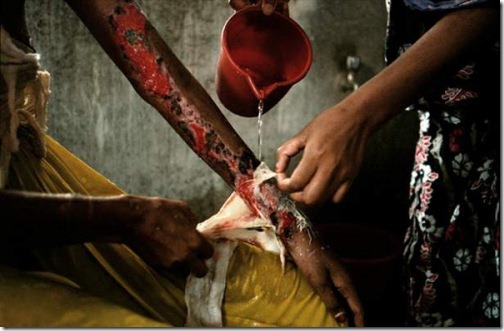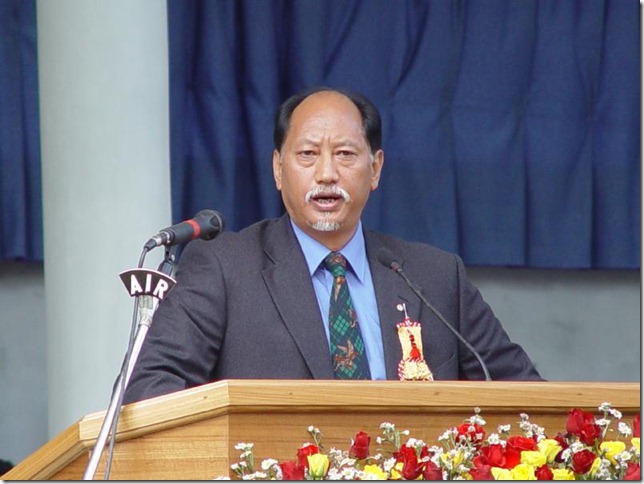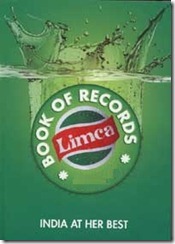
A general view of the historic Qutub Minar is pictured in New Delhi.
City of Djinns to city of gin?
By Madhusree Chatterjee
It’s 20 years since William Dalrymple’s immensely readable "City of Djinns: A year in Delhi" was published, but the author feels Delhi, in its centenary year as the national capital, has transformed from a predominantly Punjabi city to a multi-cultural one with the hip nightclubs and a new demography.

The cover of William Dalrymple's (right) "City of Djinss: A year in Delhi".
The national capital is unrecognisably different from what it was three decades ago when writer William Dalrymple came to the metropolis as a freshman in 1989 to sample the sights and sounds of India.His "City of Djinns: A Year in Delhi", which was inspired by the colours of Delhi, will complete 20 years in 2012.
Ruminating on the changes that the metropolis, celebrating its centenary year as the national capital in 2011, has undergone, Dalrymple said: "It is unrecognisably different. It was an extensively Punjabi city in the 80s."
"People were still coming for jobs; the demography was changing. But by the 90s, it was a proper capital city. Not Washington or Canberra; but New York," Dalyrymple told IANS on the sidelines of a session on "Transformation of Delhi: India's Capital at 100".
The city was declared the national capital by King George V on Dec 12, 1911, and the "seat of government was transferred from erstwhile Calcutta to the ancient capital of Delhi".
"This is the city where the media is; the buzz is. Kolkata used to be a great intellectual centre (earlier), but all the publishers and writers are here in Delhi," Dalrymple said.

A view of the old Delhi city now from the top of the Jama Masjid.
"Earlier Mumbai (Bombay) was known as a hip place; but it has been replaced by Delhi, which has all the hip new night clubs," the writer said.
The "City of Djinns", according to Dalrymple, "records Delhi not just as a historical memory" but as a living city that has continuously evolved over the centuries, making room for the old and the new.
Dalrymple would not like to re-write "City of Djinns" again on the capital's centenary year.
"Books are like children. You give them as good a start as a thing as you can. Writing that kind of book would be difficult now... but it is very much a record of the city," Dalrymple said.

An 19th century impression of the Red Fort, Jama Masjid and old Delhi.
The author is planning to celebrate the 20th birthday of the "City of Djinns", but is not sure about the nature of celebrations.
"What's lovely about the book is that it still has its little place. University kids who come here refer to the book. When it came out, 'Djinns...' had a modest beginning. It now sells 15,000 to 20,000 copies every year," he said.
The book, which won the 1994 Thomas Cook Travel Book Award, also earned Dalrymple the Sunday Times Young British Writer of the Year award.
The hype notwithstanding, Dalrymple still does not consider himself a "pucca Delhiite".
"I am a bit insider, a bit outsider which is a useful thing for a writer to be," he said.

Old British East India company painting of the 19th century historical Delhi showing the ruins.
"City of Djinns" captures Delhi in a way no other book on the city by a non-Indian does; it relates to the history of the capital spontaneously.
"It was in the citadel of Feroz Shah that I met my first Sufi. Pir Sadr-ud-Din had weasel eyes and a beard as tangled as myna's nest. The mystic sat me down on a carpet; offered me tea and told me about the djinns...," Dalrymple said in the book.
The writer wanted to see a djinn - one of the spirits - from "the other race of men created by Allah", which haunted the capital.
The Pir said Dalrymple would run away. Dalrymple was only 17 when he met the Pir Sdar-ud-din.
After 10 years at a school in a remote valley in the moors of North Yorkshire, the writer "quite suddenly found himself in India... in Delhi."
"From the very beginning, I was mesmerised by the great capital, so totally unlike anything I had ever seen before. Delhi, it seemed at first, was full of riches and horrors; it was a labyrinth, a city of palaces, an open gutter, filtered light through a filigree lattice, a landscape of domes, an anarchy, a press of people, a choke of fumes; a whiff of spices..."
Three decades on, the writer's primary concerns about his "City of Djinns" are "better preservation of monuments; better roads as they were when he came to the capital and the falling water table."
"The depleting ground water poses a danger to the city. I see my neighbours in Mehrauli digging up to 100 feet every year for water borewells," Dalrymple said.
"City of Djinns" has an infectious creativity, say young writer duo Shalabh from Himachal and Rachel Leven from New York.
The young travellers are writing a book, "Seeking Djinns" inspired by Dalrymple's book.
"We have visited the places that are mentioned in the book and are documenting the changes. Some of them are the same, while others have degenerated," Rachel Leven told IANS.
Image credit: Reuters
Image credit: www.penguinbooksindia.com
















